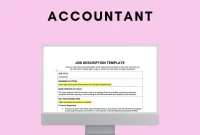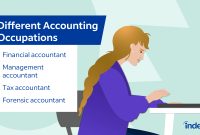Hiring a tax accountant is often a wise investment for small business owners. With tax laws constantly changing, an expert who stays up-to-date can save you money and time while ensuring you comply with regulations. But one question looms large: What’s the cost to hire a small business tax accountant? Let’s break it down.
Understanding the Role of a Tax Accountant
A tax accountant is a professional who specializes in preparing, filing, and managing taxes. They help ensure that your business pays the correct amount of taxes and takes advantage of any deductions or credits available. Their expertise can significantly reduce the risk of errors that could lead to audits or penalties.
Why Your Business Needs a Tax Accountant
Running a small business involves juggling many tasks. Taxes, while crucial, are just one part of the puzzle. A tax accountant can take the stress out of tax season by handling complex forms and understanding tax codes. They also provide valuable advice on financial planning, which can lead to long-term savings.
How Much Does It Cost?
The cost to hire a small business tax accountant varies based on several factors, including the complexity of your finances, the accountant’s experience, and your location.
Factors Influencing the Cost
Complexity of Your Financial Situation
If your business has multiple revenue streams, numerous expenses, or operates in multiple states, the complexity increases. More complexity typically means more time and effort from your accountant, which can raise the cost.
Experience and Expertise
Highly experienced accountants or those with specialized skills may charge more for their services. However, their expertise can often save you money in the long run by identifying deductions and credits you might miss.
Geographic Location
In areas with a higher cost of living, such as major cities, accountants may charge more. Conversely, in more rural areas, you might find lower rates.
Average Costs
On average, small business owners might expect to pay between $150 to $400 per hour for an accountant’s services. However, some accountants charge a flat fee for specific tasks, such as preparing a tax return, which could range from $500 to $3,000 depending on complexity.
Finding the Right Tax Accountant for Your Business
When searching for a “small business tax accountant near me,” it’s crucial to evaluate potential candidates carefully.
What to Look For
Credentials and Qualifications
Ensure your accountant is certified, such as a CPA (Certified Public Accountant) or an EA (Enrolled Agent). These credentials demonstrate a certain level of expertise and commitment to their profession.
Experience with Small Businesses
A tax accountant familiar with small businesses will better understand your specific challenges and opportunities. Ask about their experience with businesses similar to yours.
Reputation and References
Check online reviews and ask for references. Speaking with other business owners who have worked with the accountant can provide insight into their reliability and effectiveness.
Questions to Ask
- How do you keep up with changes in tax laws?
- What is your experience with businesses in my industry?
- Do you offer any additional financial services, such as bookkeeping or payroll?
- How do you charge for your services, and what is included in your fee?
Benefits of Hiring a Tax Accountant
Saving Time and Reducing Stress
Handling taxes on your own can be time-consuming and stressful. A tax accountant takes this burden off your shoulders, allowing you to focus on running your business.
Maximizing Deductions and Credits
A knowledgeable tax accountant can identify deductions and credits you might overlook, potentially saving you a significant amount of money.
Compliance and Audit Protection
By ensuring your taxes are filed correctly and on time, an accountant helps you avoid penalties. If you are audited, having an accountant can also provide peace of mind and expert guidance.
Alternatives to Hiring a Tax Accountant
For some small businesses, hiring a full-time tax accountant might not be feasible. Here are a few alternatives:
Accounting Software
Software like QuickBooks or TurboTax can help manage your finances and simplify tax preparation. While not a replacement for professional advice, these tools can be a cost-effective solution for straightforward tax situations.
Part-Time or Freelance Accountants
Hiring a part-time or freelance accountant can be a middle ground, offering professional expertise without the cost of a full-time employee.
Making the Decision
Deciding whether to hire a tax accountant depends on your business’s needs and budget. Consider the complexity of your finances and the potential benefits of professional assistance against the costs involved.
When to Hire a Tax Accountant
If your business has complex financial dealings, if you’re unsure about tax laws, or if you simply want to ensure you’re making the most of your deductions, hiring a tax accountant is a sound decision.
Conclusion
In the end, the cost to hire a small business tax accountant is an investment in your business’s financial health. By choosing the right accountant, you can save time, reduce stress, and potentially save more money than you spend.
Consider your options, evaluate potential accountants carefully, and make a choice that aligns with your business goals and budget. With the right accountant by your side, tax season doesn’t have to be a daunting time of year.



